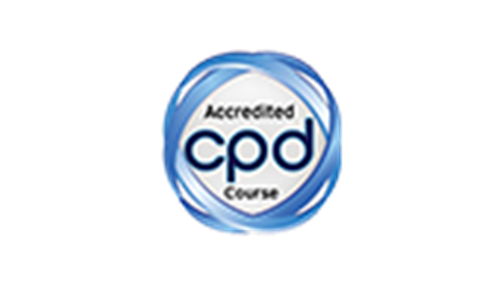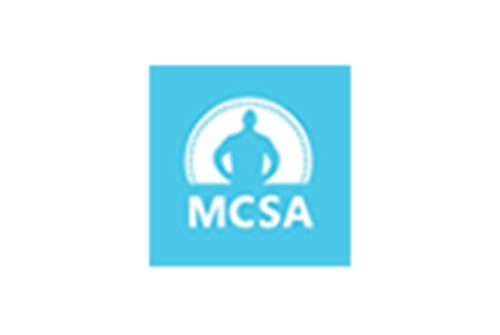Content
Alcohol addiction treatment centers offer a number of treatment options, and guide an individual through the recovery process. From the early stages of detoxification, or detox, to inpatient treatment, through to aftercare, addiction medicine continues to develop and support individuals in recovery. Approaching them may feel foreign or uncomfortable, which is why some choose to reach out to mental health or addiction specialists for guidance.
- I don’t drink every day OR I only drink wine or beer, so I can’t be an alcoholic.
- Living with someone in active addiction affects every aspect of life--from work to finances, physical well-being to relationships with family and friends.
- “For the last couple of weeks, I have sat silently and watched people try to assassinate my character, destroy my reputation and my legacy. Sickening allegations have been made against me by individuals looking for a quick payday.
- We understand that it can be extremely frustrating to watch someone you care about remain in denial of such an extreme problem, but continue to use loving and supportive language, as this will keep the lines of communication open.
While addiction denial may seem like a method of protecting yourself from hard truths about your behavior, continued denial can be harmful. If you're struggling with addiction or addiction denial, reflecting on your behavior and approaching yourself with honesty and compassion can help you begin the process of recovery. This article explores the signs of addiction denial and when to seek help. Encourage them to seek help, whether through support groups, counseling, or recovery programs tailored for alcohol use disorder (AUD).
Fear of Change Can Lead to Lying or Blaming Others
A professional interventionist has expertise in addiction treatment, family systems and what’s involved in encouraging an alcoholic or addict to enter treatment. During an intervention with a loved one, family members show love and support while setting clear boundaries around substance abuse and consequences related to drinking. Clinical interventionist Drew Horowitz explains that an intervention with an alcoholic is not a confrontation, a fight or an argument. It’s a family meeting--often facilitated by a professional who understands what it takes to motivate someone to enter treatment. To learn more about the process and possible next steps for your family. Sixty-seven percent of 94 AUD probands and 82% of 176 AUD offspring reported themselves as light or moderate social drinkers despite averages of up to 12 maximum drinks per occasion and four DSM problems.
If you’re ready to admit you have a drinking problem, you’ve already taken the first step. It takes tremendous strength and courage to face alcohol abuse and alcoholism head on. Despite the potentially lethal damage that heavy drinking inflicts on the body--including cancer, heart problems, and liver disease--the social consequences can be just as devastating. Alcoholics and alcohol abusers are much more likely to get divorced, have problems with domestic violence, struggle with unemployment, and live in poverty. It can be difficult to stop drinking alcohol once you have become addicted, as you will likely experience severe cravings and also a range of withdrawal symptoms as your body and brain have become so dependent on this substance.
Ready to make a change?
Individuals may feel embarrassed or stigmatized about their drinking habits, especially if they come from families where alcoholism was present. For instance, someone who grew up with a parent dealing with alcohol use disorder might internalize shame when facing their own addiction struggles. In my own personal experience, after hitting an emotional bottom there was 90% of my rational self that recognized I was alcoholic and 10% that did not. Only 10% was my denial, yet it had more influence over my thinking than the 90%. Today, when those denial thoughts crop up, I use them as reminders that even though I have always been high functioning, I really am an alcoholic.
- In most cases, someone in denial of their alcohol addiction will not be suffering from anosognosia.
- You may rely on alcohol and drugs to help you escape from your feelings.
- The problem is that no one is trying to take away their right to drink.
Being addicted to a substance that is socially acceptable, legal, and easily accessible may often give the users and family and friends the illusion that no problem exists when it actually does. Your ongoing recovery depends on continuing mental health treatment, learning healthier coping strategies, and making better decisions when dealing with life’s challenges. In order to stay alcohol-free for the long term, you’ll also have to face the underlying problems that led to your alcoholism or alcohol abuse in the first place. Substance abuse experts make a distinction between alcohol abuse and alcoholism (also called alcohol dependence). Unlike alcoholics, alcohol abusers have some ability to set limits on their drinking.
Stages of denial
But I resented the world for rolling on, heedless of my loss and suffering. Brain damage from alcohol misuse causes cognitive impairment resulting in a lack of insight. Joy Sutton, host of American Addiction Centers' (AAC) Sober Thursdays, had the opportunity to sit down with four current employees of the nationwide leader in addiction treatment. Discovering your child is drinking can generate fear, confusion, and anger in parents. It’s important to remain calm when confronting your teen, and only do so when everyone is sober. Explain your concerns and make it clear that your concern comes from a place of love.
Secondary denial is a form of denial that doesn't come from the alcoholic, but from the people they surround themselves with. Whether it is a 'drinking buddy' or a loved one, these people echo the sentiment of the person struggling with addiction. In many cases, the blaming and lying will not stop until the alcoholic admits to having a drinking problem. To help these individuals consider rehab, many families hold interventions.
American Addiction Centers (AAC) is committed to delivering original, truthful, accurate, unbiased, and medically current information. We strive to create content that is clear, concise, and easy to understand. Alcoholism is NOT defined by what you drink, when you drink it, or even how much you drink.
However, they may not want to or be willing to cut back at that point. If you think someone you know is in denial about their drug or alcohol use, try to be understanding and supportive. If you've had thoughts similar to the above, you may want to speak with someone you trust or a therapist to further explore your habits. They can help you recognize and overcome denial, improve your habits, or get help for a substance use disorder. Sometimes denial can be helpful for a little while when dealing with a stressful or traumatic situation.
Signs of Addiction Denial
Because denial is common, you may feel like you don’t have a problem with drinking. You might not recognize how much you drink or how many problems in your life are related to alcohol use. Listen to relatives, friends or co-workers when they ask you to examine your drinking habits or to seek help. Consider talking with someone who has had a problem with drinking but has stopped. HFAs personally experience strong and lasting denial, but their loved ones and social set are not immune to this phenomenon.
If a woman regularly drinks more than three drinks in one day or more than seven drinks in one week, she is at higher risk of becoming addicted. If a man regularly drinks more than four drinks in one day or more than 14 drinks in one week, his risk of addiction is also increased. https://ecosoberhouse.com/ This page will explain in depth why denial is such a common symptom of alcohol, how to tell whether someone is in denial and what you can do to help. Environmental factors such as access, social pressure, and lack of coping can also increase the likelihood of addiction.






























 WhatsApp
WhatsApp